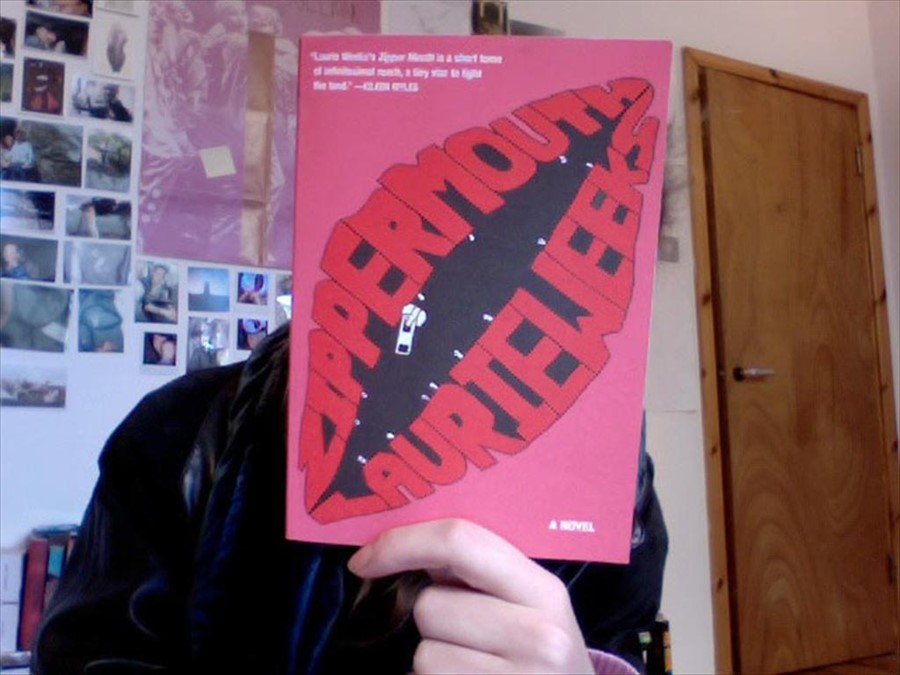Since collaborating on the screenplay for Boys Don’t Cry twelve years ago, Laurie Weeks has made occasional offerings to the world of literature. But she now emerges from the periphery of what’s important to prove that her time has been put to good
Since collaborating on the screenplay for Boys Don’t Cry 12 years ago, Laurie Weeks has made occasional offerings to the world of literature (short stories printed in Vice, The Baffler and LA Weekly). But she now emerges from the periphery of what’s important to prove that her time has been put to good use. With an honesty that has won the praise of the inimitable Eileen Myles, her debut novel Zipper Mouth tells the comic and heart-wrenching tale of unrequited love in New York and leaves us with an all-too-vivid understanding of how temptation can creep in to unseat the rhythm of existence.
Obsessing over her straight best friend, our nameless protagonist (an autobiographical figure, we presume), reels under the continued torture of unfulfilled desire, and we are invited to join her: following from the “long lattices of dusk” of her Lower Eastside apartment, to life on the sidewalk where she lives amid “flows of jabbing, vindictive pedestrians”. But what the plot lacks in continual thrills (this is a drawn-out descent), it makes up for in sexual voyeurism and paranoid rambling. There is no question of Zipper Mouth’s entertainment value and its description rivals the best writing of recent years.
"Embarrassment, fear of rejection and all its associated paralysis consume our protagonist whilst the liberating effects of hedonism affect the story by degrees"
To those familiar with Weeks’ work, the subject of sexual frustration and subsequent heroin addiction will come as no surprise and the painful treatment of sexual identity that characterised Boys Don’t Cry certainly finds its way into the novel. But the message is one of universal significance. Embarrassment, fear of rejection and all its associated paralysis consume our protagonist whilst the liberating effects of hedonism affect the story by degrees. The result is a beautiful telling of psychosis (drug-induced and otherwise) that is painfully honest and depressingly funny.
Another good book for anyone keen to laugh at the tragedy of existence (who isn’t?) and to savour the talents of a bright, new literary force.
Zipper Mouth is published by The Feminist Press at the City University of New York and iis available from all major book shops.
Similar to this:
Wetlands by Charlotte Roche –the most famous tale of sexuality told in recent years. Since first being published in 2009, Wetlands has found its way into the canon of women’s literature.
Bright Lights, Big City by Jay McInerny – with its tale of cocaine addiction in New York City it is difficult to escape the similarity between Zipper Mouth and this contemporary classic. If you haven’t read it, do; it’s a rite of passage.
Cool for You by Eileen Myles – a lesser-known tale of female strength from the prolific poet and author of Chelsea Girls and Inferno.
Nathalie Olah is a London based writer. She has previously contributed to titles that include Dazed & Confused, Sunday Times Style, The Sunday Times Magazine and The Esthetica Review.
